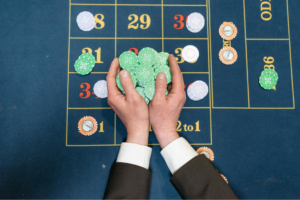
In the glittering world of slot games, where excitement and anticipation often take center stage, it’s crucial to acknowledge that the allure of spinning reels can cast a shadow of negativity for some individuals. While slot games like Fluffy in Space provide entertainment for many, understanding the potential adverse effects on specific individuals sheds light on the side of the gaming experience that warrants attention.
Let’s explore how slot games can impact some people negatively, delving into the complexities beneath the surface.
Compulsive Gambling: The Tug of Endless Spins
For a subset of players, slot games can trigger compulsive gambling behavior. The rapid pace and constant availability of spins create an environment where individuals may struggle to resist the urge to continue playing. This compulsivity can lead to extended gaming sessions, financial strain, and a diminished ability to control one’s gambling habits, ultimately culminating in negative consequences.
Financial Strain: Draining Pockets And Bankrolls
The enticing nature of slot games, with their promises of potential jackpots and big wins, can lure some players into a cycle of excessive spending. Pursuing elusive fortunes may result in financial strain as players invest more than they can afford to lose. The negative impact extends beyond gaming, affecting personal finances and budgetary stability and potentially leading to broader economic challenges.
Social Isolation: The Solitude of The Reels
The solitary nature of slot gameplay can contribute to social isolation for some individuals. As players become engrossed in the virtual world of spinning reels, they may withdraw from social interactions, both online and offline.
This isolation can lead to strained relationships, reduced social engagement, and an overall impact on mental well-being as the virtual world takes precedence over real-world connections.
Emotional Distress: The Rollercoaster of Wins And Losses
The unpredictable nature of slot outcomes, with its highs of wins and lows of losses, can evoke a rollercoaster of emotions. For some players, the emotional turbulence associated with these fluctuations can contribute to heightened stress, anxiety, and even depression. The pursuit of wins and the emotional response to losses can create a cycle of intense feelings that impact mental health negatively.
Time Consumption: The Unseen Toll on Productivity
Slot games, with their immersive designs and captivating features, can inadvertently consume significant amounts of time. For individuals prone to addictive behaviors, excessive time spent on slot gameplay may detract from daily responsibilities, work commitments, and other essential activities. This time consumption can lead to a decline in overall productivity and hinder personal and professional growth.
Impact on Mental Health: Beyond The Reels
The negative impact of slot games on mental health goes beyond emotional distress. Compulsive gambling behaviors can contribute to broader mental health issues, including heightened stress, anxiety disorders, and even the exacerbation of pre-existing conditions.

The immersive nature of slot games may act as a coping mechanism for some, further entrenching problematic patterns and making it challenging to seek help.
Conclusion: Navigating The Shadows of Slot Play
While slot games offer entertainment for many, it’s crucial to recognize and address their potential negative impact on certain individuals. Understanding the complexities of compulsive gambling, financial strain, social isolation, emotional distress, time consumption, and their broader impact on mental health allows for a more nuanced perspective on the shadows that may lurk beneath the glittering surface of spinning reels. By acknowledging these challenges, the gaming industry can work towards fostering a safer and more responsible gaming environment for all players.













